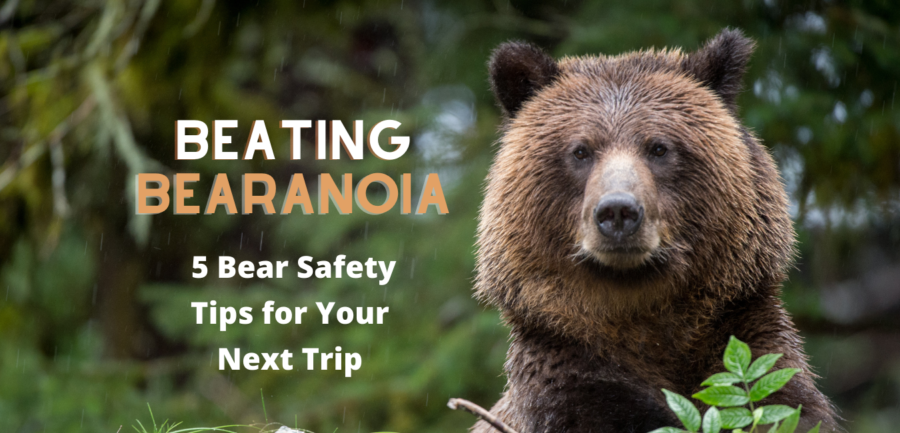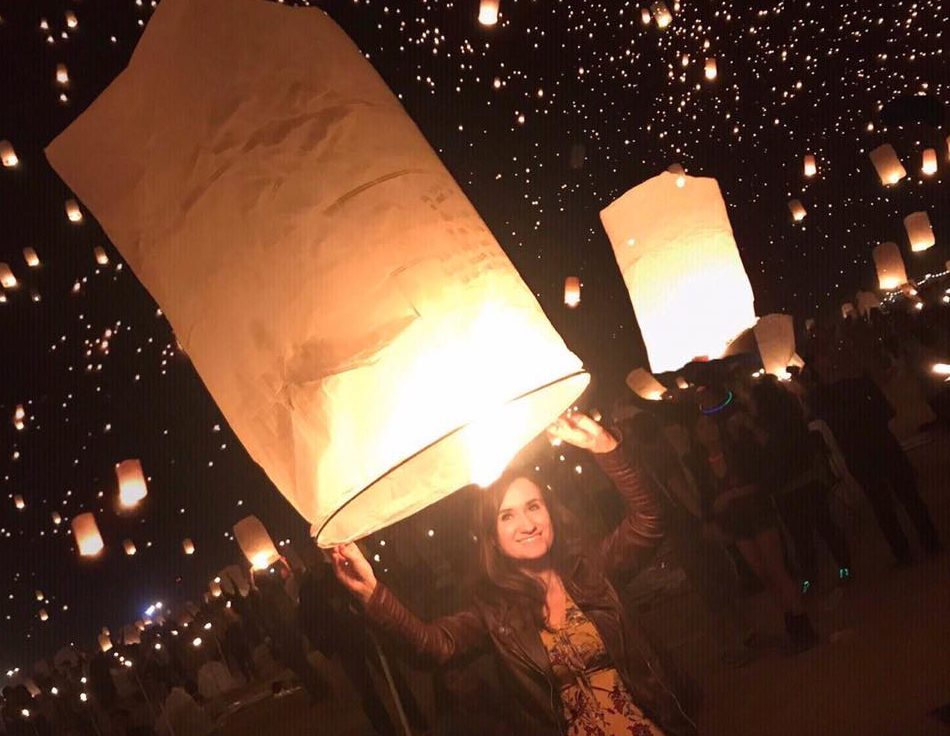My trail name is “Bearanoia.”
I earned the name on a bucket list backpacking trip through Glacier National Park, where I was so terrified of running into a grizzly that I insisted on singing whenever there was a long lull in conversation.
I’m not sure that I alerted any bears, but I definitely annoyed my hiking companions. 🙂
After many years of hiking and backpacking in bear country (mostly black bears with some grizzlies, too) I still get nervous at night sometimes, but my bearanoia isn’t as paralyzing as it once was.
Here are a few tips for beating your bearanoia — or at least suppressing it long enough to get a decent night’s sleep.
1. Research the area and what kind of bears there are (if any)
Just because you’re in the woods doesn’t mean there are necessarily bears there — so do your research!
Black bears are the bears you’re most likely to see in North America. Not all “black bears” are black in color (which is confusing!) but they’re generally smaller and less aggressive than brown/grizzly bears.
Black bears may look scary, but they’re actually pretty skittish — kind of like oversized squirrels— and are rarely aggressive towards humans.
Grizzly bears are a lot bigger and more likely to be aggressive, though attacks on humans are still very rare. (You’re much more likely to be killed by another human than by a grizzly.) But their range is limited to just a few areas of a few states: Alaska, Montana, Washington, Idaho, and Wyoming. If you’re not in those states (or in Canada,) you don’t need to worry about grizzlies. If you are in those states, always carry bear spray and stay tuned for more safety tips. (And do your own research on the area before hiking.)
2. Make yourself known
Bears hate surprises, so make as much noise as you can —singing, shouting, clapping— to show that you’re a human. They’re just as scared of you as you are of them and will almost always get out of your way.
3. Store all of your smellies in a bear-proof container outside the tent
This includes things like deodorant, sunscreen, toothpaste, and anything else that has a scent, in addition to anything edible.
Nothing that comes out of your body (no matter how smelly!) needs to go in the bear bin. Dispose of bodily discharge the way you normally would, remembering to leave no trace. 🙂
Most established campgrounds will have a bear-proof container at your campsite. If you’re dispersed camping or backpacking, you can buy a portable bear canister at REI or Amazon.
4. Lock your car
Bears can open car doors, and they will if they smell food inside. Don’t leave food in your car if you can help it, either, because the highly motivated ones will still find a way inside.
5. Don’t rely on bear bells or music (talk instead)
Studies show that bears get used to the noise of bear bells and don’t necessarily identify them with humans anymore.
There’s a joke that goes:
Q: How can you tell if it’s black bear poop?
A: It smells sweet and has berries in it.
Q: How can you tell if it’s grizzly bear poop?
A: It smells spicy and has bear bells in it.
If you’re hiking with friends, talking out loud and singing to yourselves is the best way to alert bears of your presence. If you’re hiking alone in bear country, you can play an audiobook or podcast on portable speakers to make it sound like you’re hiking in a group. The more human your noises sound, the better.





Leave a Reply